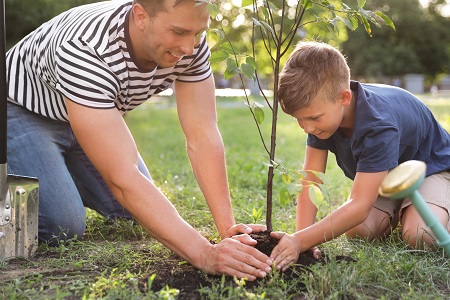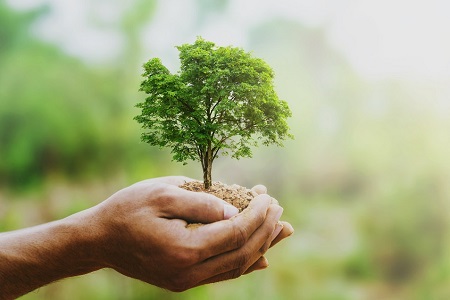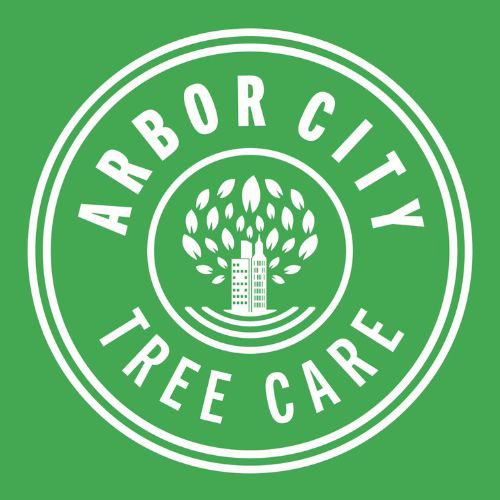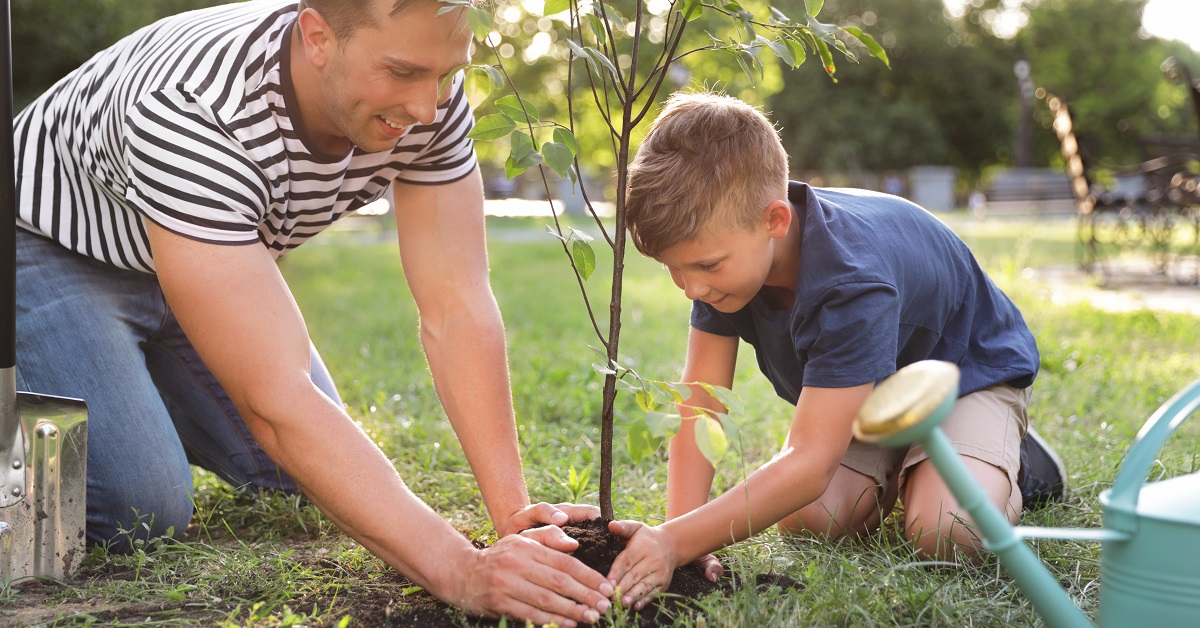It feels like a person needs to live at least 100 years before they begin to understand the world. There are so many cultures, languages, and people on our little blue dot. But one thing we all have in common is trees. Trees provide us with oxygen and shade from the sun while also providing a habitat for many animals and insects. Planting a tree might seem just an aesthetic choice, but it has tremendous benefits that extend well past money value. We’ve provided a list of four oak-solid reasons for choosing to plant a tree on your lawn today!
Create Natural Shade

Perhaps the most significant way to provide natural shade in your garden or front yard includes planting deciduous trees like the Oregon white oak, the Oregon ash and the bigleaf maple. However, the Pacific Northwest features a soil quality that can host more plants than just native plants. Other popular non-native mature trees include the American sycamore, basswood, bald cypress, black tupelo, Kentucky coffee tree, northern catalpa, Norway maple and sugar maple. All these varieties grow to more than 20 meters in average height, making them great long-term shade providers.
However, if you’re looking for a smaller shade tree, several options grow below 20 meters. The Japanese maple, saucer magnolia, Pacific dogwood and Pacific crab apples can provide shade while taking up less space. Of course, it’s going to take time before they really begin to grow and stretch out the shade, but any tree will provide a comfortable spot to sit on the lawn, chair or no chair.
Control Soil Erosion and Stormwater Runoff
Much like an iceberg, there’s more to these incredible plants than just the trunk and canopy. The root system which grows underneath their foliage is just as expansive, if not more, providing the tree with an efficient food and water network. These roots provide a positive impact on handling both soil erosion and stormwater management. The local fauna is even more adept at providing these services because they have evolved in that climate to provide the ecosystem with just the right touch. Planting native trees will ensure that water moves through the soil–allowing rainwater to feed into creeks, streams and rivers–without drastically increasing flooding or rapidly eroding valuable topsoil.
Additionally, trees help reduce air pollution and smog in your area from airborne pollutants. While no single tree will create a bubble against air pollution, they aid in sequestering greenhouse gases and poor air quality. Some even transform the air with a pleasant scent. Planting multiple small flowering shrubs like magnolias, Osage oranges, or even the fragrant western red-cedar can provide your lawn with a delightful perfume. However, the benefits to the environment do not just end there!
Create Native Habitat
Planting trees helps create more habitat for birds, insects, and other animals that live in your area. Though non-native species serve as home to animals, it’s an excellent choice to plant native species since they usually grow in their natural ecosystem faster can help prevent invasive species from spreading. Both their foliage and tree roots will provide a plethora of habitats. By planting native trees, you give native fauna a better chance to enjoy an otherwise natural habitat than just looking to plant landscape trees.
Ecologist Doug Tallamy, speaking with the Audubon Society, provides an example: a native oak tree can support over 500 different species of caterpillars, while an ornamental tree like the foreign ginkgo can only support five. This sheer difference in species diversity extends to more than just caterpillars. Moths, butterflies, bees, birds and other smaller animals will thrive in native tree habitats and provide another integral piece to the “food web” of your area while making your property look splendid.
Increase Curb Appeal and Property Value

Not to be facetious, but beyond all of these admirable and noble reasons to help the environment and create natural habitats and shade, we would be remiss not to mention the obvious: manicuring an outdoor nursery makes for a beautiful sight. Our gorgeous landscape is only enhanced by the presence of tree species like Douglas firs and western red-cedars. Trees add an artistic quality to outdoor spaces while still also providing all of their environmental benefits.
It’s no lie: treelined boulevards can make or break the attractiveness of a neighborhood. Planting almost any type of tree is one of the most economical ways to increase your home value because it adds to curb appeal. According to the United States Forest Service, cultivating healthy trees can add on average 10% increased value to a house. With a well-planned sequence of hedge trees, you can screen an inconspicuous shed or a neighbor’s yard and beautify a plain corner of the home. Just remember to plant trees with invasive root systems–elms, willows and poplars a safe distance away from house foundations, plumbing and swimming pools–to prevent structural damage, says real estate agent Buzz Mackintosh.
Depending on the climate, different trees add different values and picking the wrong tree can lead to a loss. Because of the Pacific Northwest’s cooler weather, planting maples, oaks and basswood is highly recommended in addition to our native evergreen trees. With a little bit of time, elbow grease and water, you will find your investment paying dividends when you finally decide to sell.
Arbor City Tree Care Can Help You Grow Trees
Whether you’re looking to increase your property value, create natural shade in the hot summer months, or want a beautiful addition that will improve curb appeal and home values, you’ll want a skilled arborist’s advice. Arbor City Tree Care provides free consultations, so don’t hesitate to get in touch today! Trust in our experts to help you plan out your next tree planting.

